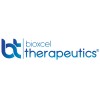
XP13512 (Gabapentin Enacarbil) Extension Study in Patients With Restless Legs Syndrome.
Restless Legs SyndromeThe primary objective of this trial is to assess the long-term safety and efficacy of XP13512 (Gabapentin Enacarbil) taken once daily for the treatment of patients suffering from Restless Legs Syndrome (RLS).

Three Different Transdermal Doses of Rotigotine in Subjects With Idiopathic Restless Leg Syndrome...
Restless Legs SyndromeThe primary objective of this trial is to demonstrate that rotigotine (SPM 936) is efficacious in subjects with idiopathic restless leg syndrome (RLS). Additional objectives are to investigate the safety and tolerability of rotigotine. The primary variables are the absolute change from Baseline in the International Restless Legs Severity Scale (IRLS) sum score and Clinical Global Impression-Global Improvement (CGI) Item 1 (severity of illness) score at the end of the Maintenance Period. Subjects will be randomized to receive either placebo, 2.25, 4.5 or 6.75 mg/day rotigotine in a 1:1:1:1 (active:placebo) fashion. Approximately 450 subjects will be enrolled in this trial, participating at approximately 50 sites. The maximum duration of the trial is approximately 8 months (3-week Titration Period, 6-month Maintenance Period, 7-day Taper Period, and 30-day Safety Follow-Up Period). Subjects who complete the 6-month Maintenance Period will be eligible to participate in an open-label extension trial. Subjects who do not complete the 6-month Maintenance Period or who choose not to participate in the open-label extension trial will complete a 3-day Safety Follow-Up Period. Two different patch sizes will be used (5 and 10 cm2). Active patches will contain either 2.25mg (5cm2) or 4.5mg (10cm2) of rotigotine.

Restless Legs Syndrome Treatment With Botulinum Toxin
Restless Legs SyndromeRestless Legs Syndrome (RLS) is a common sensori-motor disorder that causes sensory discomfort and motor restlessness, most often in the legs, which improves with movement. Although medications are available to treat the disorder, many people either experience side effects that prevent them from continuing on the medication or do not sufficiently respond to current RLS medications. Recently, botulinum toxin type A (BNT) has been reported to relief RLS in patients with severe symptoms but this was not confirmed by other anecdotal reports. The investigators propose to test the efficacy of BNT on RLS symptoms by designing a more controlled study. Ultimately, this may lead to extend the therapeutic arsenal of this disorder.

Ropinirole XR (Extended Release) In Patients With Restless Legs Syndrome
Restless Legs SyndromeThe purpose of this study is to assess the efficacy and safety of ropinirole XR in the treatment of adults with Restless Legs Syndrome (RLS).

An Extension Trial to Investigate Long-Term Treatment With Transdermal Rotigotine in Idiopathic...
Restless Legs SyndromeThis is a multicenter, open-label trial to assess safety and tolerability of rotigotine (SPM 936) in subjects with idiopathic Restless Legs Syndrome (RLS), administered at an optimal dose for up to 1 year. Subjects who successfully completed the Maintenance Period and the Taper Period of SP792 are allowed to enroll in this trial. All subjects will begin the Titration Period at a daily dosage of 1.125mg rotigotine (2.5cm2 patch). Subjects will be up-titrated at 7-day intervals in 1.125mg (2.5cm2 increments, initial titration step only) and 2.25mg intervals (5cm2) increments to a maximum dose of 6.75mg/day (15cm2) rotigotine. The maximum length of titration is 28 days (±3 days), although not all subjects will require 28 days to reach their optimal dose. A subject's dose may be increased or decreased, as needed by the investigator to maintain a subject's effective dose during the Maintenance Period. A Taper Period is provided to allow for safe, gradual withdrawal from trial medication

Study of Istradefylline (KW-6002) for the Treatment of Restless Legs Syndrome
Sleep DisorderRestless Legs SyndromeThe primary purpose of this study is to evaluate the efficacy, safety, and tolerability of 40 mg per day of istradefylline (KW6002) in patients with Restless Legs Syndrome.

Extension Study Evaluating NTX100 Neuromodulation System for Medication-Refractory Primary RLS
Restless Legs SyndromeMulti-center, prospective open-label extension study of noninvasive peripheral nerve stimulation (NPNS) with the NTX100 Neuromodulation System for patients with medication-refractory moderate- severe primary RLS

Dexmedetomidine in the Treatment of Agitation Associated With Dementia (TRANQUILITY II)
AgitationDementiaA study to determine the safety and efficacy of BXCL501 dosing for episodes of agitation associated with dementia when they occur (given as needed [PRN]), for a maximum of 28 doses within a 12-week treatment period.

DIalysis Symptom COntrol-Restless Legs Syndrome Trial
End Stage Renal DiseaseRestless Legs SyndromeThe DISCO-RLS Trial is a randomized controlled trial to determine the safety and efficacy of pharmacologic therapy (ropinirole versus placebo and gabapentin versus placebo) for the treatment of Restless Legs Syndrome in patients with End Stage Renal Disease requiring hemodialysis.

RESTIFFIC™ Foot Wrap Reduces Moderate to Severe Restless Leg Syndrome
Restless Leg SyndromeThe purpose of this study is to determine the safety and efficacy of RESTIFFIC™, a foot wrap that produces adjustable targeted pressure on specific muscles in the feet, to reduce the symptoms of moderate to severe primary Restless Legs Syndrome.
